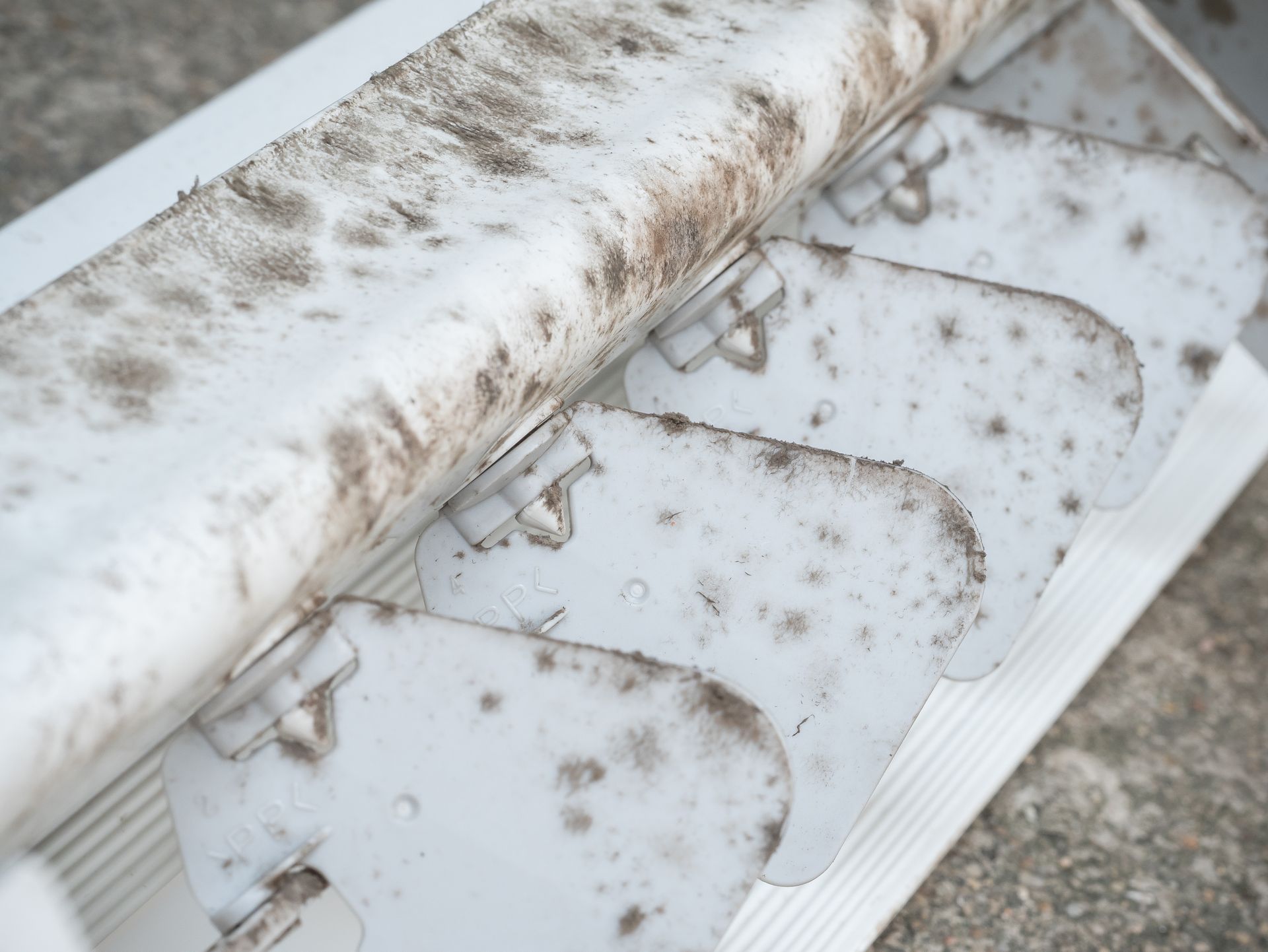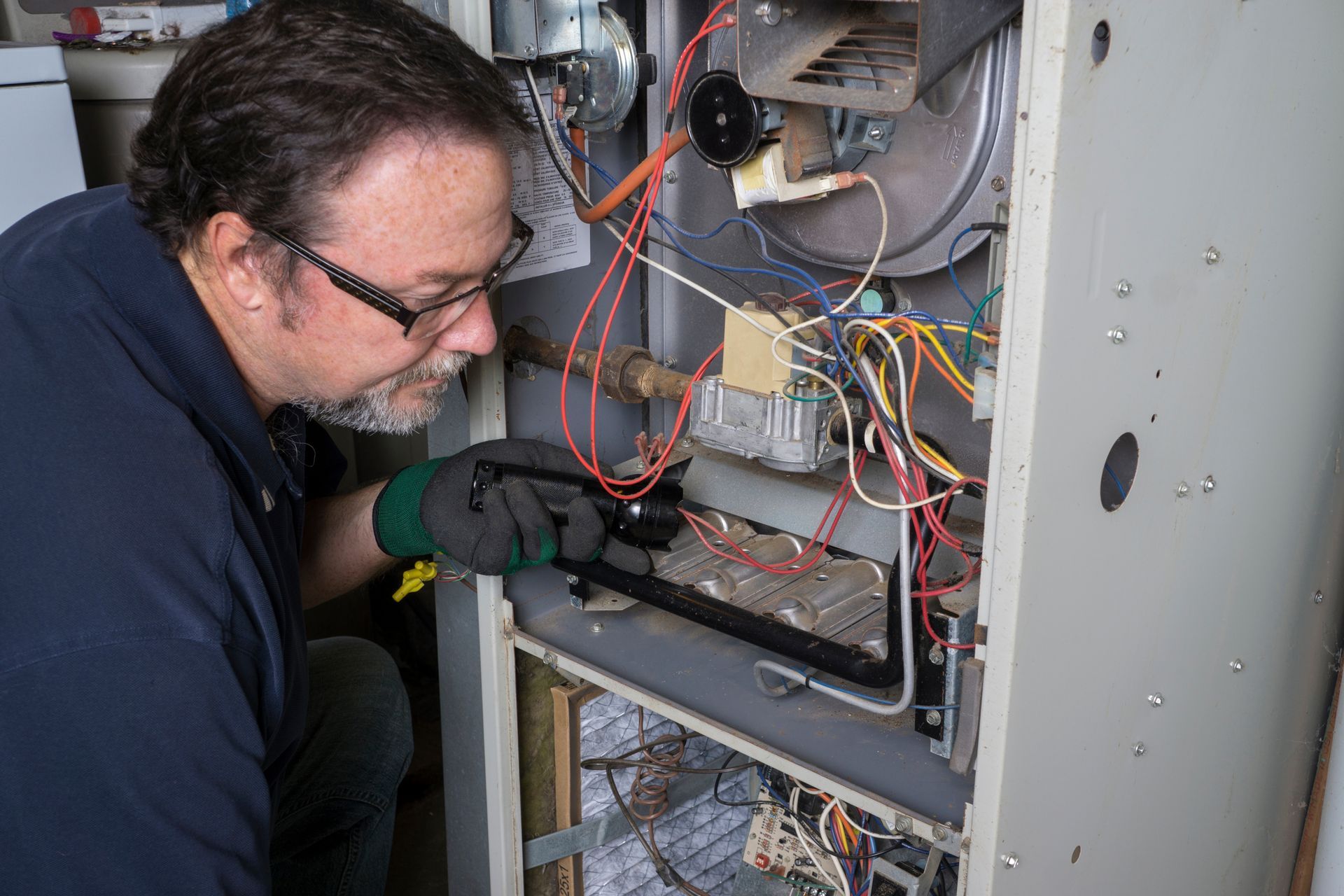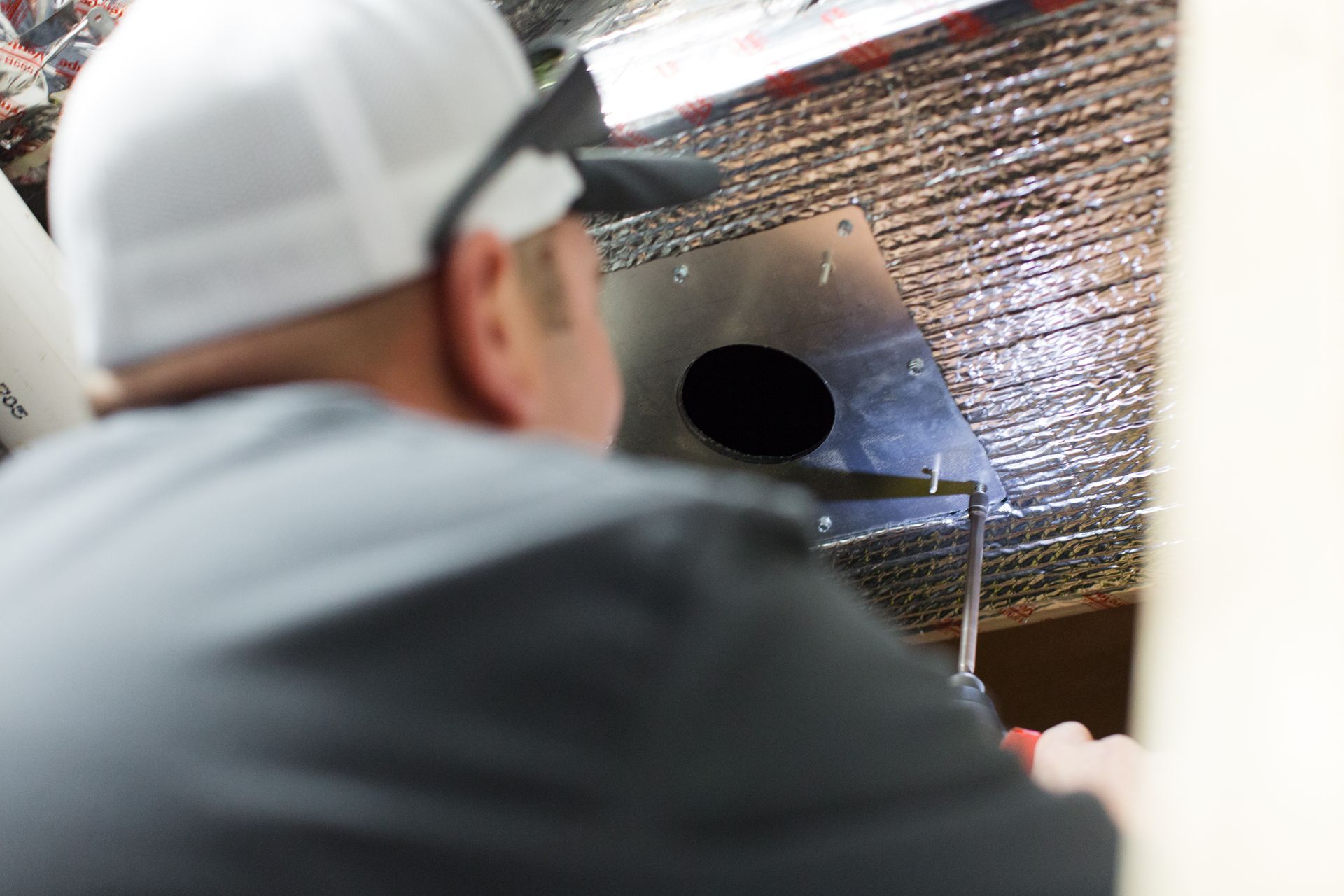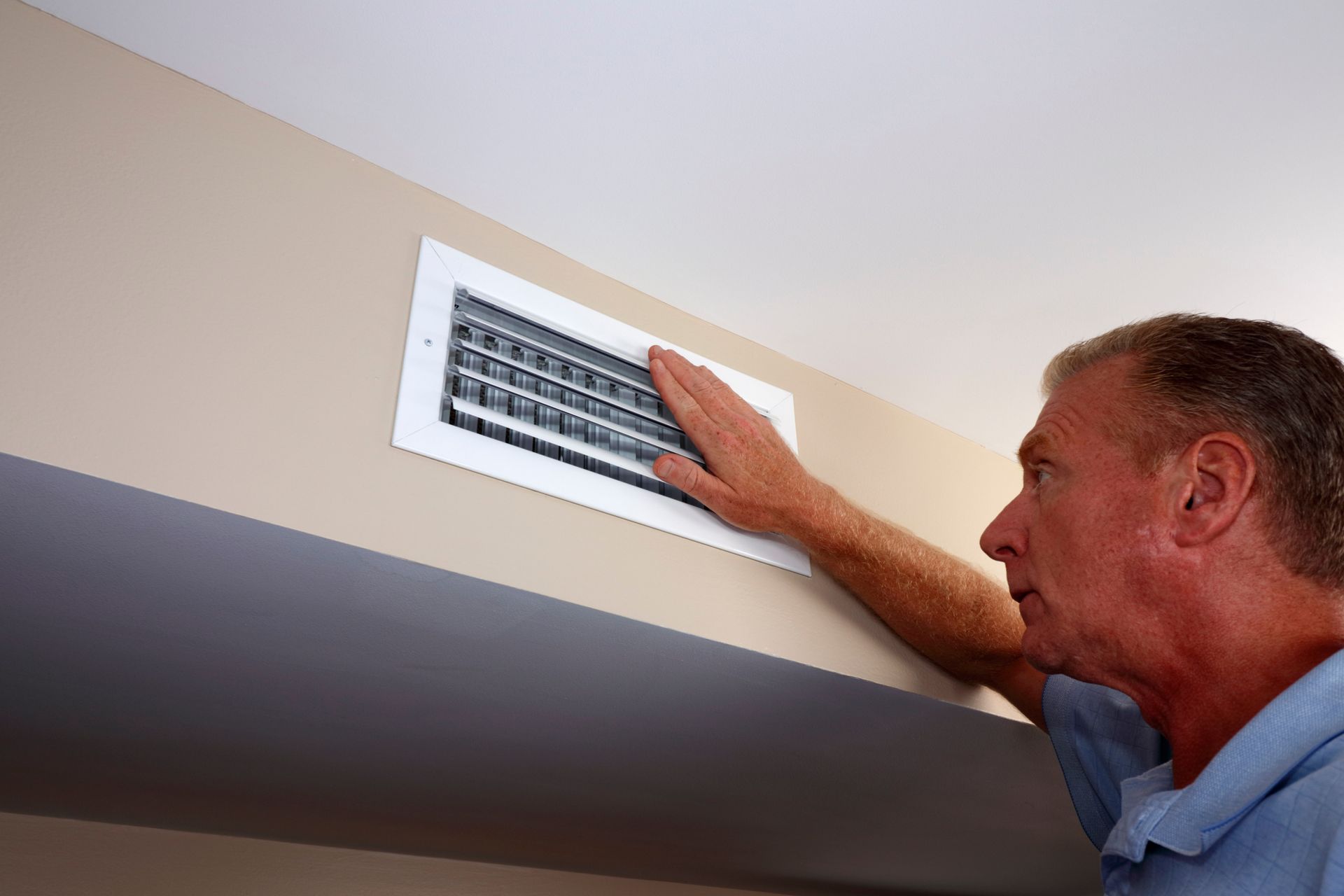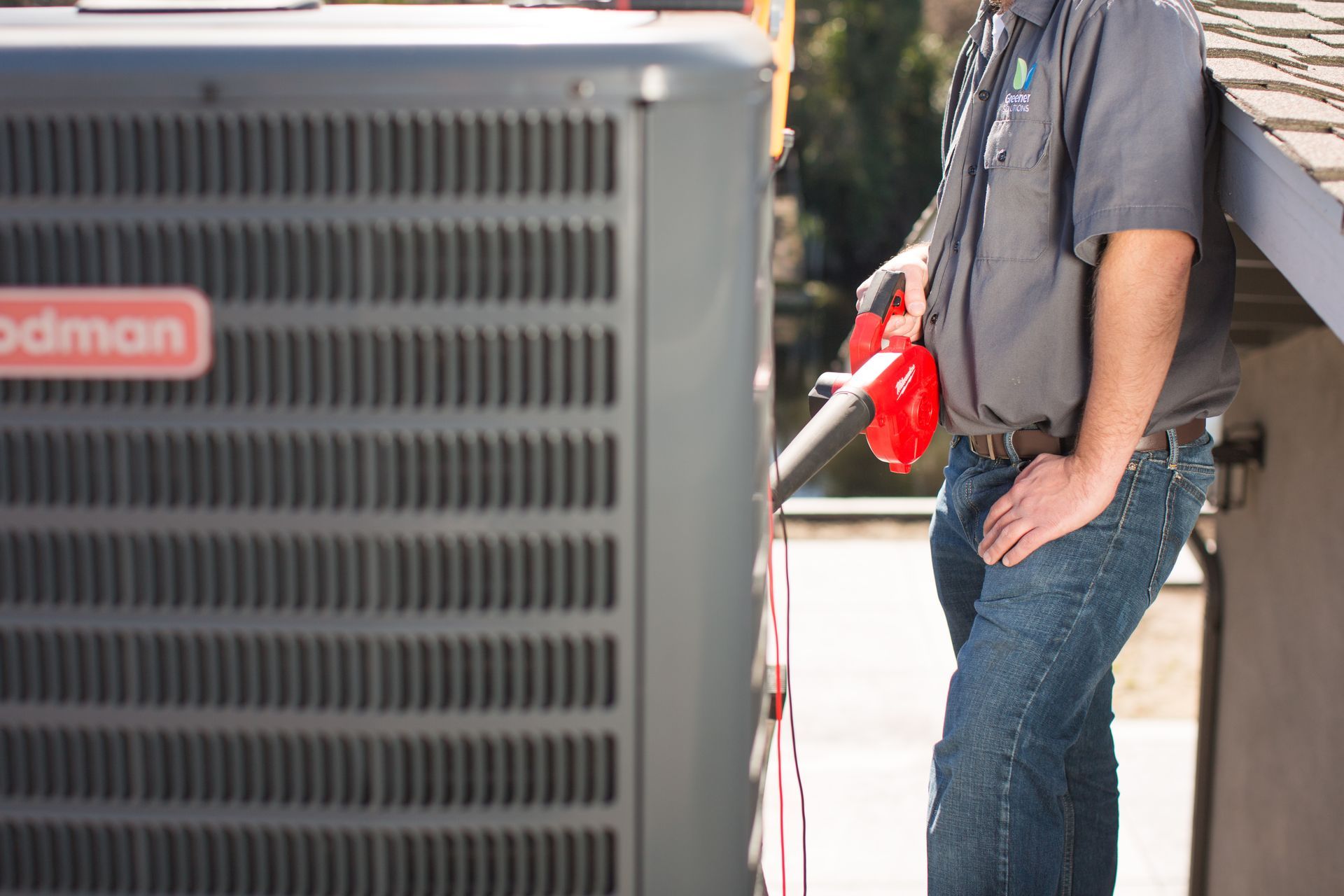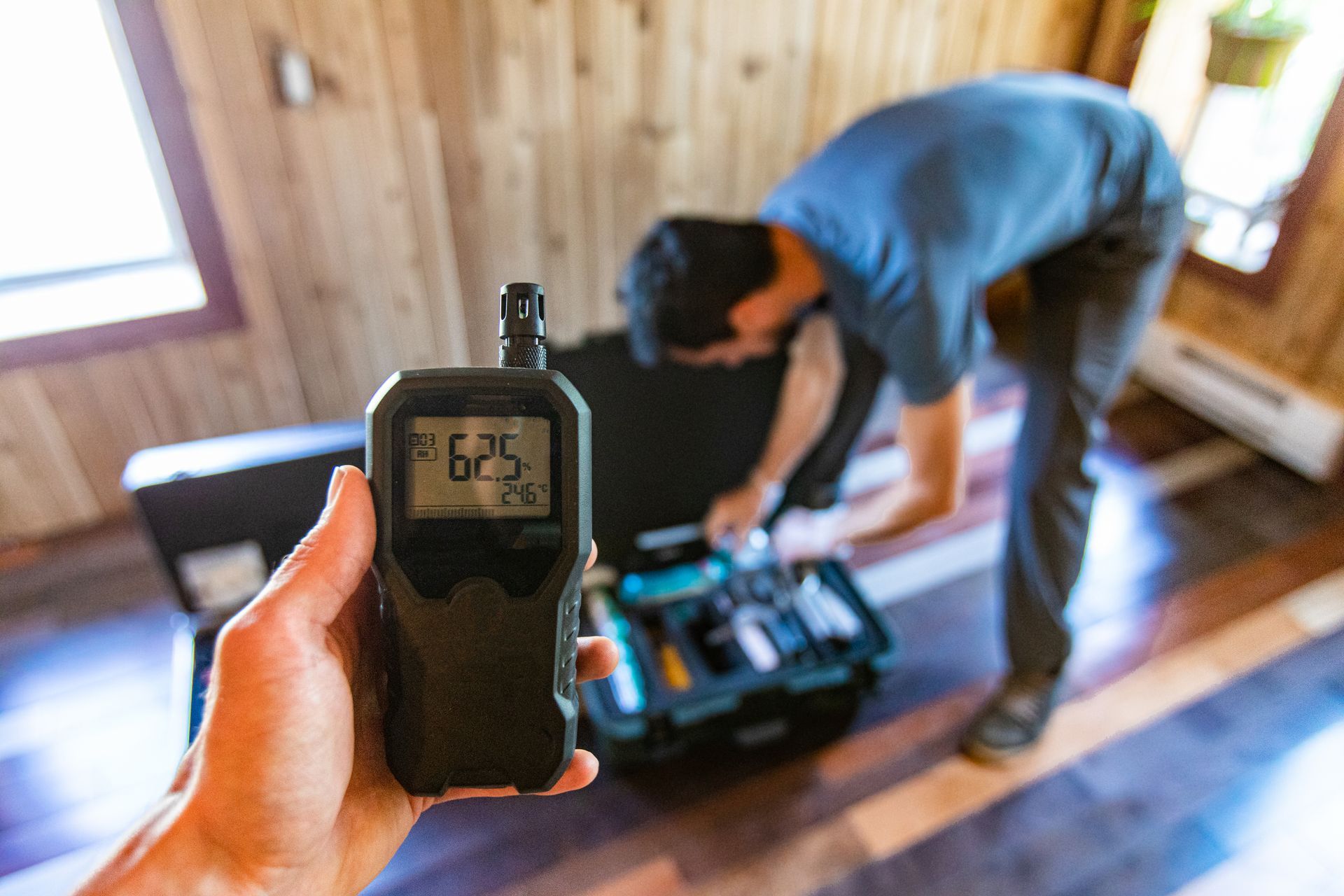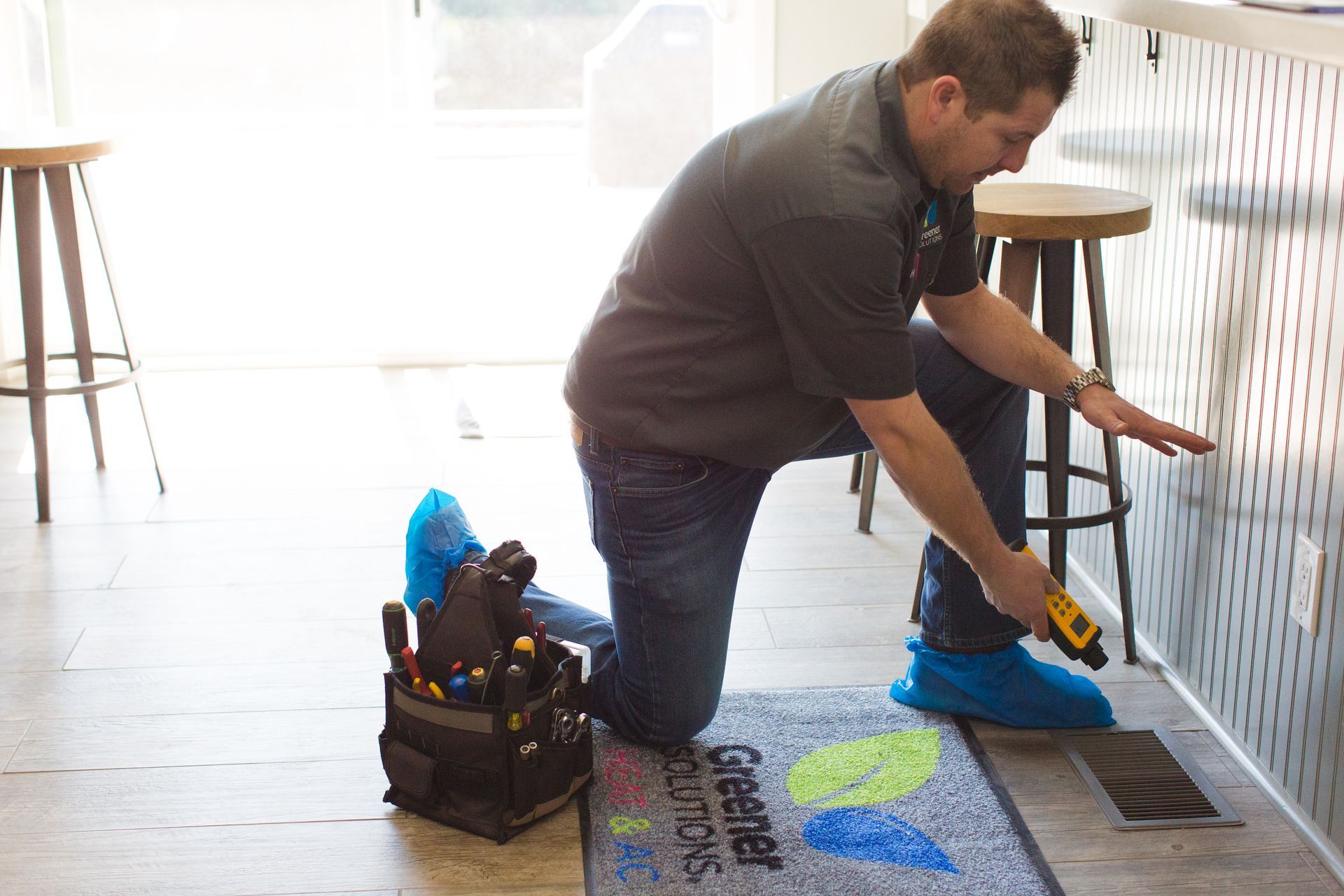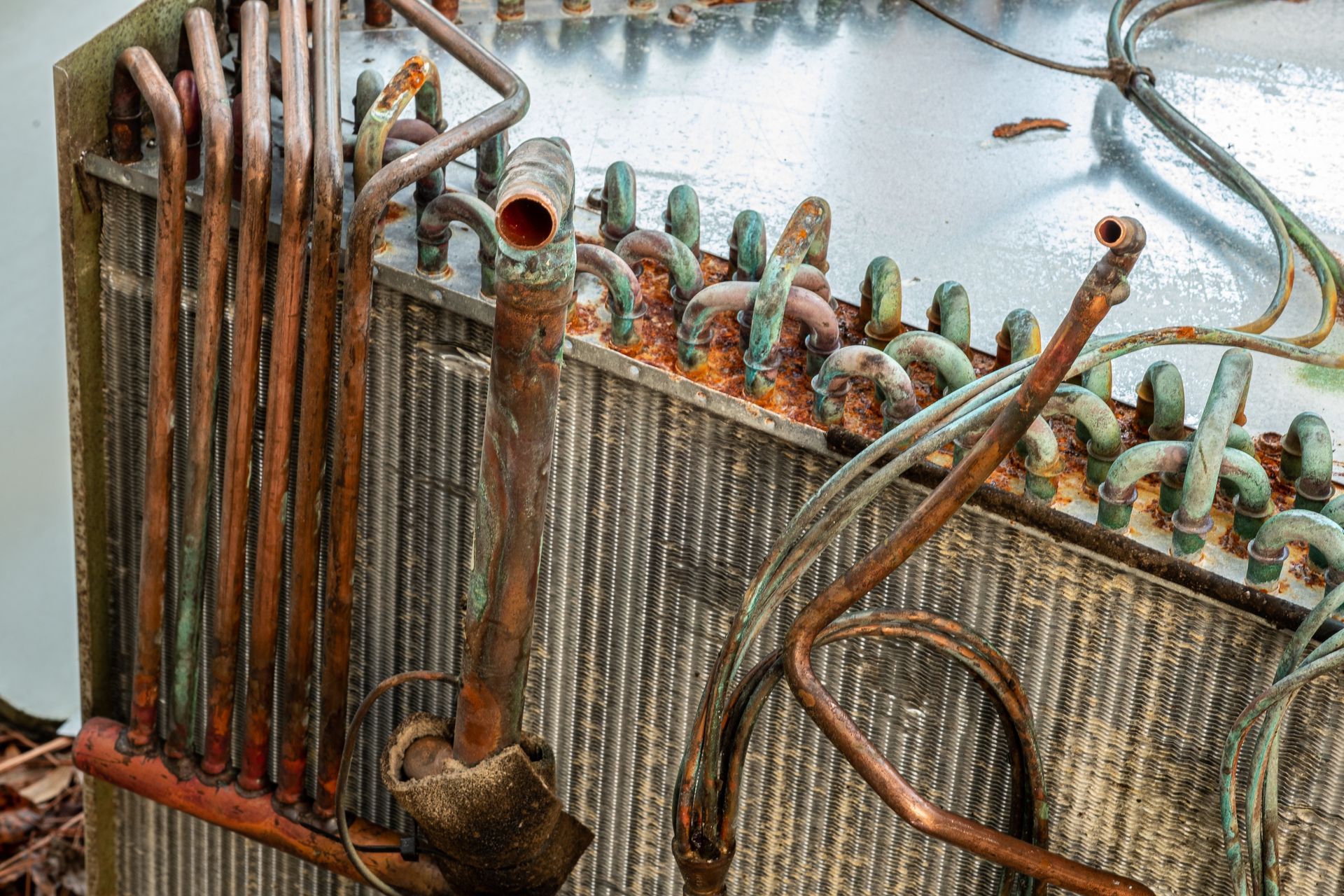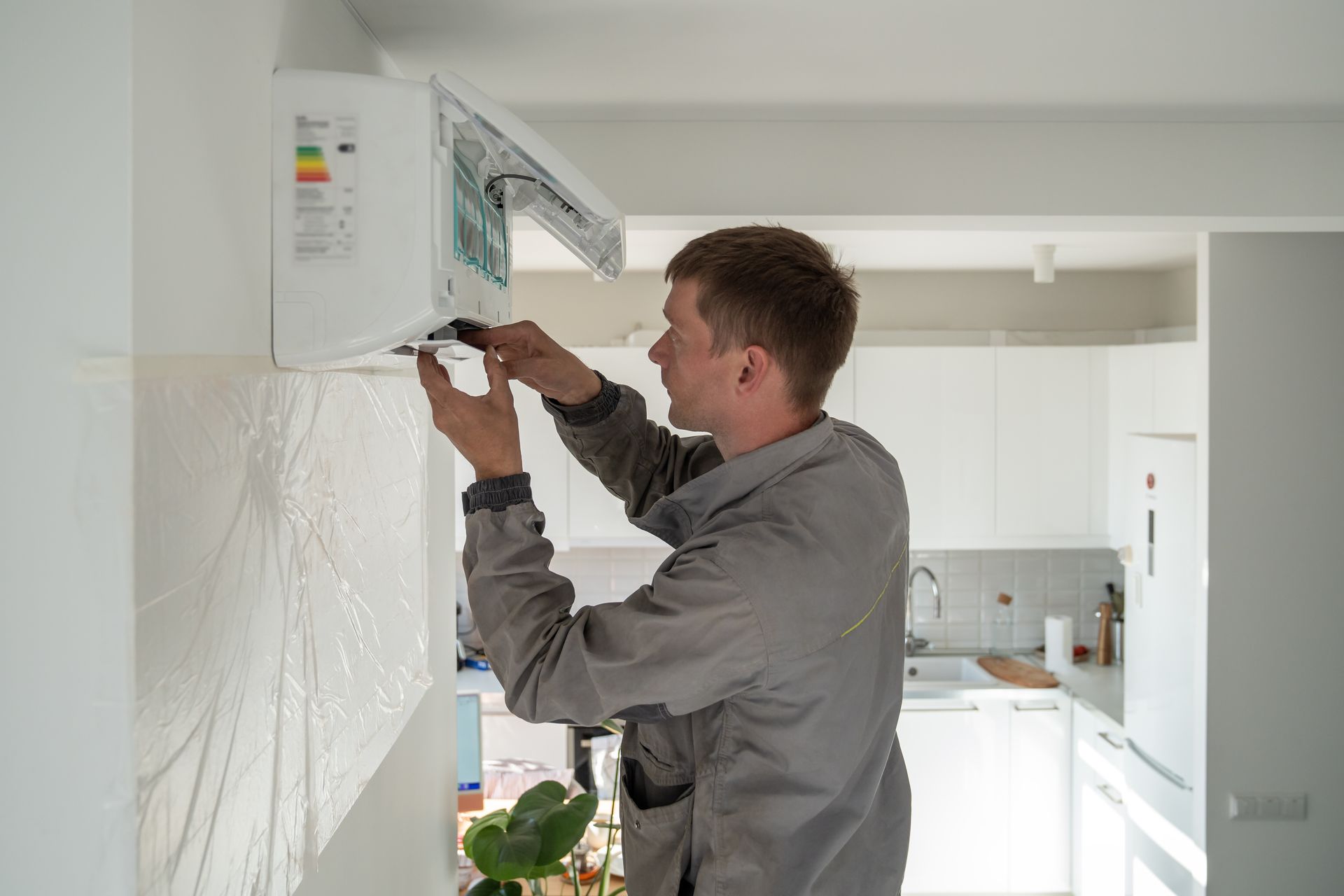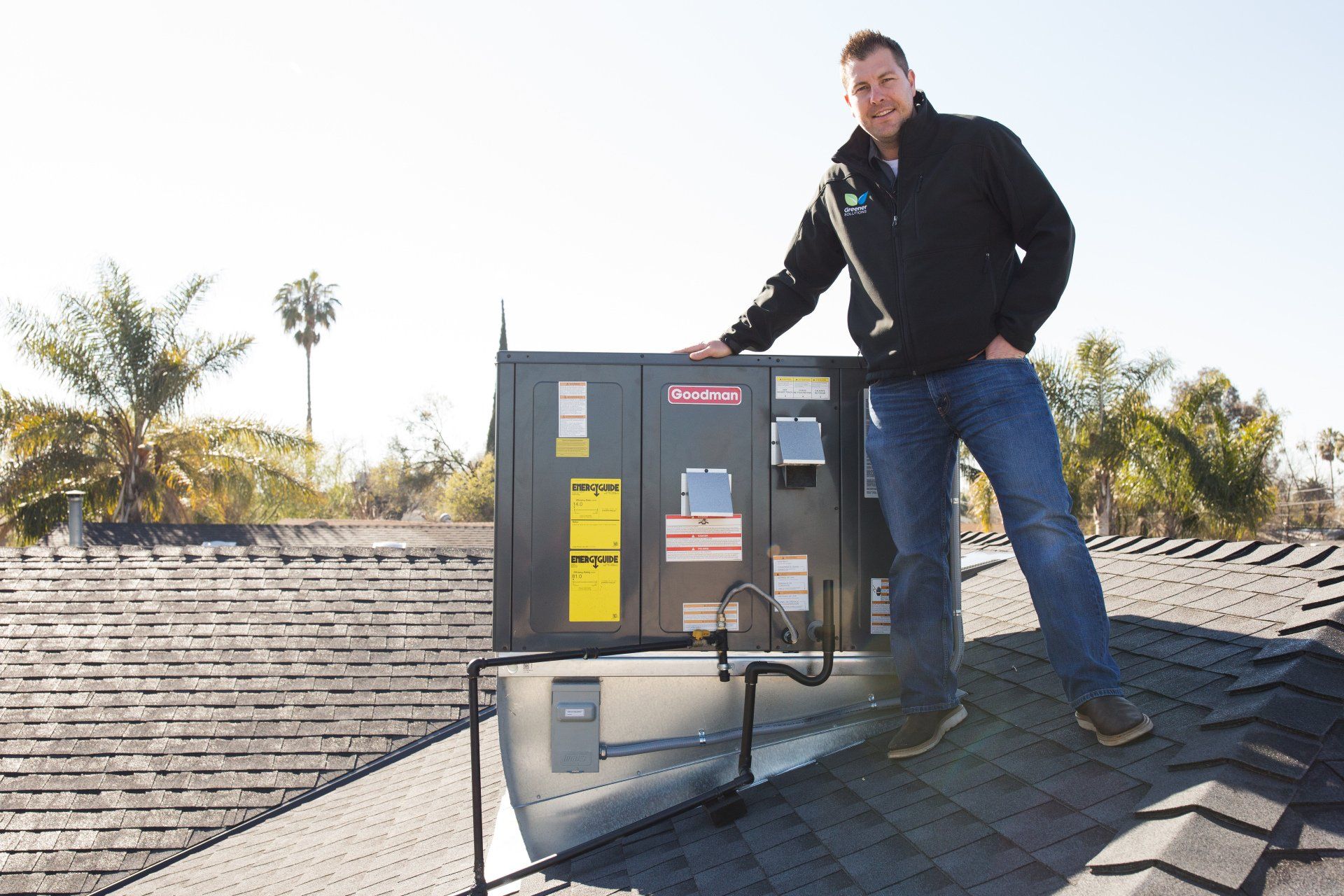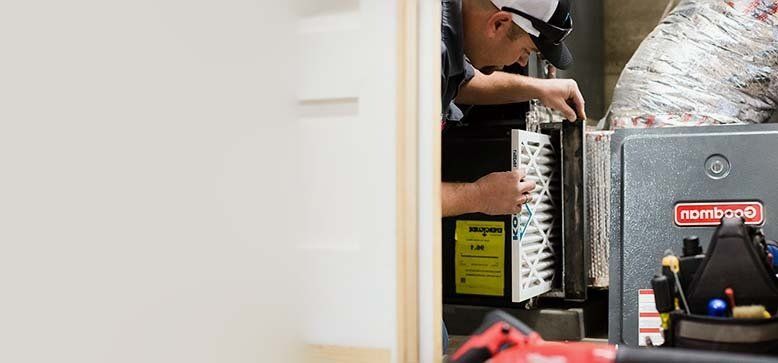Why Is My Furnace Leaking Water?
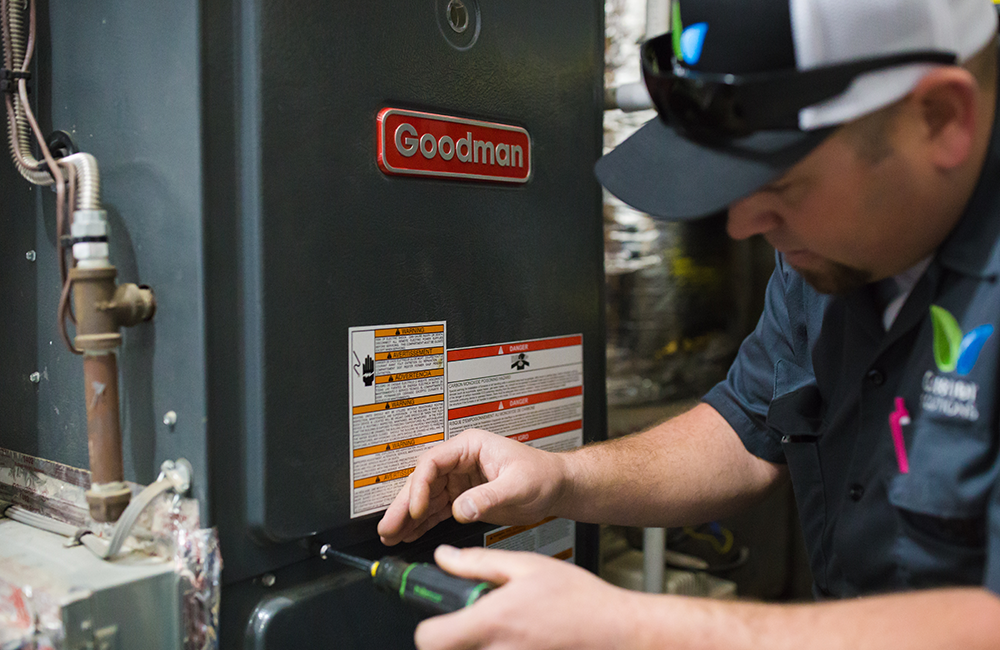
Having a leaking furnace is a common problem that homeowners must deal with. If the problem is not addressed, a leaking furnace can contribute to higher repair costs, water damages, and mold and mildew growth. When this happens, it is important to clean up the water and inspect the furnace to find where the source of the leak is. If the source can’t be found, a professional check up is recommended to determine the source of the leak and fix it.
How Does a Furnace Work?
To understand how a water leak is formed, it is important to understand how a furnace works in general. Most furnaces are triggered by a thermostat that sends signals to the gas valves to release fuel when the temperature drops below a certain temperature. The fuel that is released is ignited by the pilot light which then heats the air around the heat exchanger. The heat exchanger then warms the air that is passed over it before it is distributed throughout a home or business by the blower fan.
Where is Water Produced?
Most conventional furnaces do not produce water at all, but newer high efficiency models that contain a condenser element do. These high efficiency furnaces utilize a secondary heat exchanger to capture the exhaust gases that are released and discharged via the flue. When the heat from the exhaust gases is captured in the condenser, the transfer of heat causes water to form from the water vapor contained in the air. This process results in condensation which causes water to build up. These higher efficiency models result in a runoff that is usually drained into a condensate pump or floor drain.
How to Tell Which Furnace You Have
If you don’t know which type of furnace you have, it is easy to tell them apart by examining the exhaust pipe. Metal pipes that can corrode are usually indicative of a standard efficiency noncondensing furnace unit, while furnaces that have a white plastic PVC exhaust pipe usually indicate a condenser furnace.
Why is My High Efficiency Furnace Leaking?
When a condenser furnace releases its exhaust, there is usually condensation that follows. This condensation usually comes from the exhaust pipe which needs to be drained into a condensation pump or drain. The following reasons are all possibly behind a leaking condenser furnace:
Leakage from the condensate drain hose
Before the condensation is expelled from the furnace it must pass from the condenser unit and down the flue pipe. If that drain hose that helps expel the condensation becomes blocked or bent, there is nowhere for the condensation to go. This can cause water to pool inside the unit and eventually overflow in an area that is not designated for the condensation.
Inducer assembly crack
After the condensation flows through the condensate tube, it is passed into the inducer assembly. However, if the inducer assembly has a leak or is cracked, this can result in water leakage that comes from the furnace.
Condensate line leakage
Once the condensation makes it past the inducer assembly it runs through the drain line. Much like the other condensation pathways, if there is a clogged condensate line, it’s leaking, or poorly connected, it will cause water buildup or leakage in areas not designed to hold water.
Condensate trap backup
Not all condenser units have a condensate trap, but these elements can get blocked up which can result in condensation overflow.
Condensate pump leakage
The condensate pump is where the condensation finally drains into. Just like the other elements that can cause leakage, the pump can become blocked which will result in condensation spillage. When there is leakage around the furnace on the floor by the unit, this is usually a sign of the condensate pump being blocked up.
Why is My Non-High Efficiency Furnace Leaking?
If the furnace is a standard efficiency furnace, there is no where for condensation to build up. This means that any leaking water around the furnace is usually the result of another appliance like the air conditioner. If that is the case, the AC unit could be leaking as a result of several problems like:
- Damaged drain pan
- Frozen AC coils
- Clogged drain lines / condensate pump
Is A Furnace Water Leak a Serious Problem
Water is a corrosive element that can create lots of problems down the line if left unchecked. It may take some time before it becomes a serious problem, but water seepage can cause costly repairs down the line. In addition to the repairs needed to fix the furnace to optimize efficiency, water can cause rust and decay in and around your furnace. The most dangerous outcome is if the leakage starts in the heat exchanger which can cause the metals inside to rust. If the heat exchanger rusts to the point where a hole or crack develops, it can release harmful CO2 and carbon monoxide emissions into a home or business. Not only does this pose a threat to the efficiency of the furnace which increases costs, it can also cause serious health issues including death if not checked on in time. In addition to a damaged heat exchanger, water can also come in contact with electrical elements that can cause electrical surges and damage to the primary circuit board. In these instances, a furnace may no longer work, and the entire electrical system would need to be replaced.
What Should You Do if Your Furnace is Leaking?
In the event water leakage is discovered around the furnace, it is important to follow these steps.
Step 1: Power down the furnace
Be sure to turn the furnace off to ensure that no more condensation is being produced to add to the problem. This can be done by throttling down the thermostat or turning off the furnace all together.
Step 2: Unscrew the main panel of the furnace
Open up the main panel to see if the source of water buildup can be located. Once open, do your best to clean up any standing water inside the furnace.
Step 3: Clean up water around the furnace
After the insides have been dried, be sure to clean up and dry any standing water outside of the furnace to ensure that mold and mildew are prevented.
Step 4: Replace filter
If the filter has gotten wet, there is a strong chance that it will develop mold or mildew. If this happens, running the furnace may cause the mold or mildew to spread through out a home or business so it is critical to replace the filter.
Step 5: Enlist the help of an HVAC professional
Without a thorough understanding of HVAC mechanics, it is important to enlist the help of professionals. They will inspect the furnace to determine where the problem is occurring and take the necessary steps to fix the problem so proper drainage can happen.
How to Prevent Furnace Leaks
The best way to prevent furnace water leaks is to ensure that the furnace is properly maintained and tuned up regularly by an HVAC professional. Regular inspections and maintenance will identify problems early and catch signs of water leakage or build up before it causes serious problems. Even if water leakage occurs, regular maintenance can repair the problem while it is a minor issue before it develops into a much more serious problem.
Contact Greener Solutions Heat and AC to Help with Your Furnace Leak
If you have a leaky furnace, it is extremely important not to ignore it. Call Greener Solutions Home Services to have a licensed HVAC professional come out to inspect your furnace and check for any leaking water or build up to ensure that your furnace operates all the way to the end of its expected lifespan. We can schedule an appointment to have an HVAC technician come out at your earliest convenience to ensure that your furnace and HVAC systems are operating at maximum efficiency.
Furnace Leak FAQs
-
Is it bad if my furnace is leaking water?
It is definitely not a good sign when your furnace is leaking. This could be the result of blockage any where in the condensation exhaust lines and can create water build up inside and outside of your furnace.
-
Why is my furnace leaking water?
When there is water underneath your furnace, it is usually a sign that your condensate pump or floor drain are blocked up. If the leak has been overlooked for some time, it could also indicate that there is enough condensation buildup inside the furnace that it is now overflowing and causing the water to pool on the floor.
-
Is a leaking furnace an emergency?
A leaking furnace is not an emergency, but it is something that should be looked into immediately. Water leakage that is coming from a furnace should result in the unit being turned off, cleaned, and inspected by a professional to ensure that serious internal damage has not occurred.
-
How do I fix a leaky furnace?
Furnace repair without an in depth understanding of the mechanics of a furnace can be dangerous and should be left to professionals. In the event of leakage, call Greener Solutions Home Services to get a licensed HVAC technician out to inspect and repair your furnace.
Recent Posts
-
Our Services
ButtonSee All Our Services
-
About
ButtonLearn More about
Greener Solutions
-
Contact Us
ButtonImmediate Service
Emergency Services
Live Support
Have an HVAC emergency? Call for immediate service. Available 24/7

